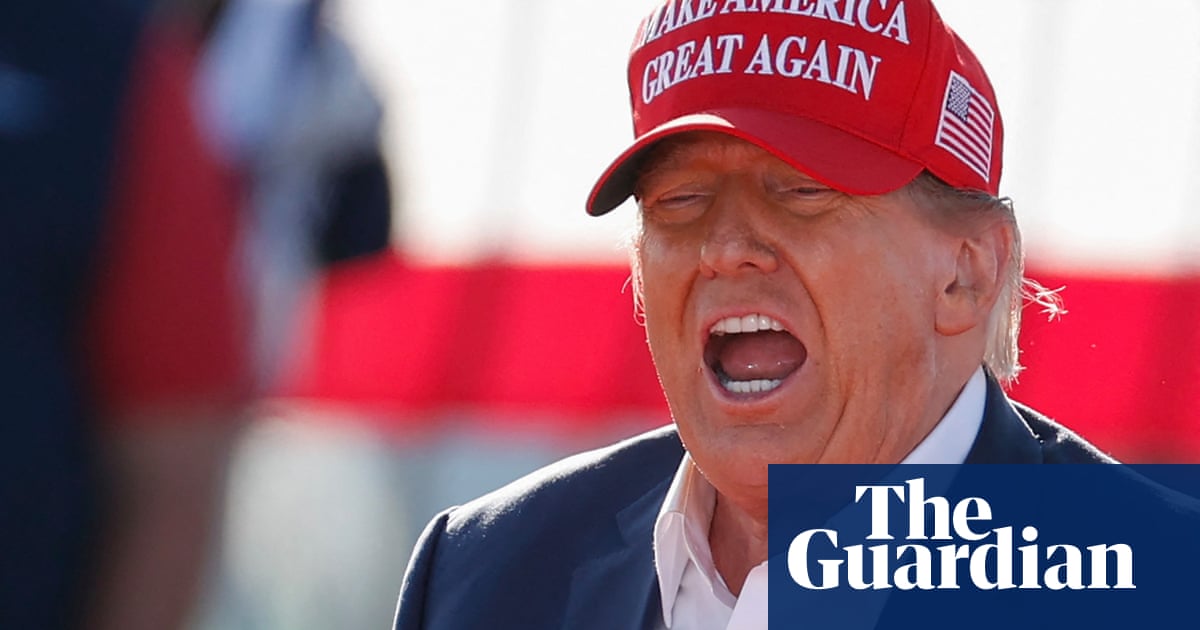Excerpts from his speeches do not do justice to Trump’s smorgasbord of vendettas, non sequiturs and comparisons to famous people
Donald Trump’s speeches on the 2024 campaign trail so far have been focused on a laundry list of complaints, largely personal, and an increasingly menacing tone.
He’s on the campaign trail less these days than he was in previous cycles – and less than you’d expect from a guy with dedicated superfans who brags about the size of his crowds every chance he gets. But when he has held rallies, he speaks in dark, dehumanizing terms about migrants, promising to vanquish people crossing the border. He rails about the legal battles he faces and how they’re a sign he’s winning, actually. He tells lies and invents fictions. He calls his opponent a threat to democracy and claims this election could be the last one.
Trump’s tone, as many have noted, is decidedly more vengeful this time around, as he seeks to reclaim the White House after a bruising loss that he insists was a steal. This alone is a cause for concern, foreshadowing what the Trump presidency redux could look like. But he’s also, quite frequently, rambling and incoherent, running off on tangents that would grab headlines for their oddness should any other candidate say them.
Journalists rightly chose not to broadcast Trump’s entire speeches after 2016, believing that the free coverage helped boost the former president and spread lies unchecked. But now there’s the possibility that stories about his speeches often make his ideas appear more cogent than they are – making the case that, this time around, people should hear the full speeches to understand how Trump would govern again.



This is the best summary I could come up with:
Journalists rightly chose not to broadcast Trump’s entire speeches after 2016, believing that the free coverage helped boost the former president and spread lies unchecked.
Watching a Trump speech in full better shows what it’s like inside his head: a smorgasbord of falsehoods, personal and professional vendettas, frequent comparisons to other famous people, a couple of handfuls of simple policy ideas, and a lot of non sequiturs that veer into barely intelligible stories.
This conclusion is the most straightforward part of a Trump speech and is typically the extent of what a candidate for office would say on the campaign trail, perhaps with some personal storytelling or mild joking added in.
But in a presidential race among two old men that’s often focused on the age of the one who’s slightly older, these campaign trail antics shed light on Trump’s mental acuity, even if people tend to characterize them differently than Joe Biden’s.
While Biden’s gaffes elicit serious scrutiny, as writers in the New Yorker and the New York Times recently noted, we’ve seemingly become inured to Trump’s brand of speaking, either skimming over it or giving him leeway because this has always been his shtick.
During this week’s Wisconsin speech, which was more coherent than usual, Trump pulled out a few frequent refrains: comparing himself, incorrectly, to Al Capone, saying he was indicted more than the notorious gangster; making fun of the Georgia prosecutor Fani Willis’s first name (“It’s spelled fanny like your ass, right?
The original article contains 1,809 words, the summary contains 246 words. Saved 86%. I’m a bot and I’m open source!